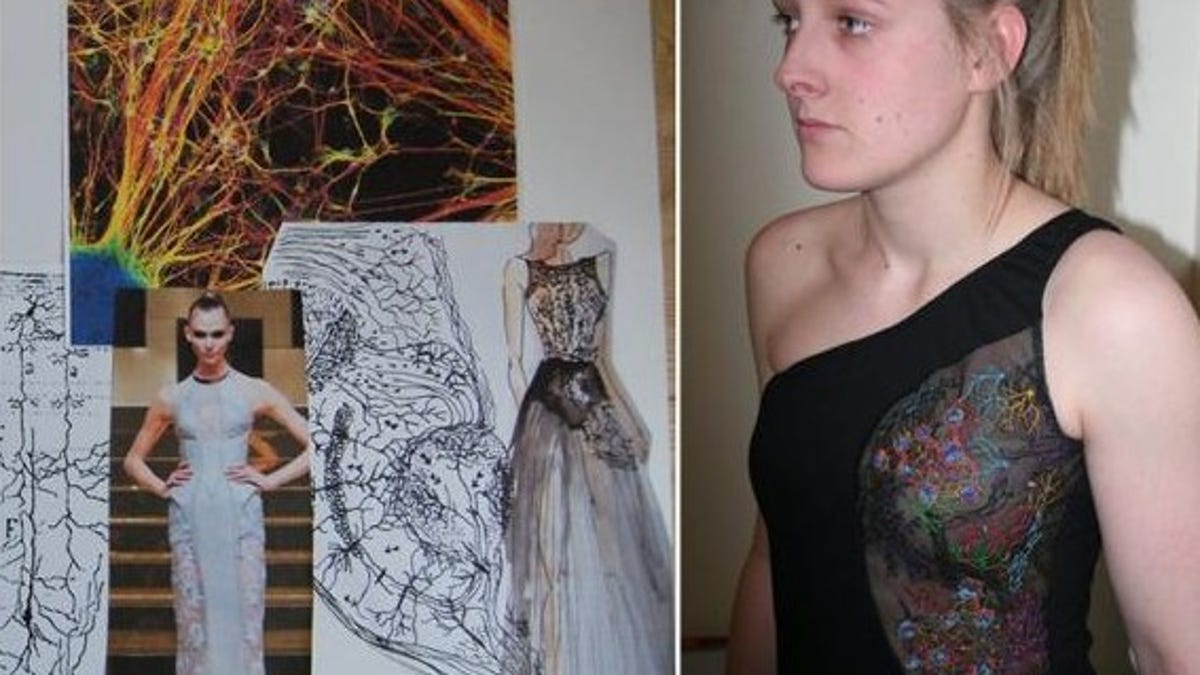A little black dress that speaks to schizophrenia
U.K. design students fashion powerful garments that aim to explain the neuroscientific underpinnings of bipolar disorder, epilepsy, autism, Alzheimer's, and more.

At first glance, it's a black dress festooned with colorful embroidery. But Nikki Day had much more than style in mind when threading the intricate pattern into the garment's left side.
The British fashion design and knitwear student researched the morphology of various classes of cortical neurons and then embroidered images to reflect the theory of schizophrenia as a disease of aberrant brain circuit connectivity.
"The dress is tight and slightly restricts movement to reflect the effect these brain cell malfunctions can have in limiting people with the disease in everyday life," she says. "The intricate needlework draws you in and before you know it you are discussing how the cortical neural circuits are formed."
Getting people to talk about mental illness and other neurological conditions is precisely the point of "Changing Minds."
The collaboration between the University of Southampton and its Winchester School of Art challenges students to create clothes inspired by research into conditions including schizophrenia, bipolar disorder, stroke, epilepsy, autism, and Alzheimer's disease. The results can be quite powerful, as demonstrated in the gallery below.
The third year of the project will see 23 of the conceptual garments on display next week at the Festival of Neuroscience, part of the British Neuroscience Association's biennial meeting.
Students involved in the project research their designs extensively with the help of University of Southampton neuroscientists, who share their research into topics such as cellular and synaptic function and dysfunction and connect the students with university researchers actively working on a given condition. The students also have an opportunity to visit the research labs to further develop their understanding and ideas.
"We emphasize that it is important for the design to be based on the neurobiology of the disease or the effect/impact of the disease," Shmma Quraishe, a postdoctoral research fellow at the university who has been involved with the project for several years, told Crave. "The resultant garments aim to destigmatize and demystify mental health disorders by depicting the biological basis of the disorder and/or its effects."

